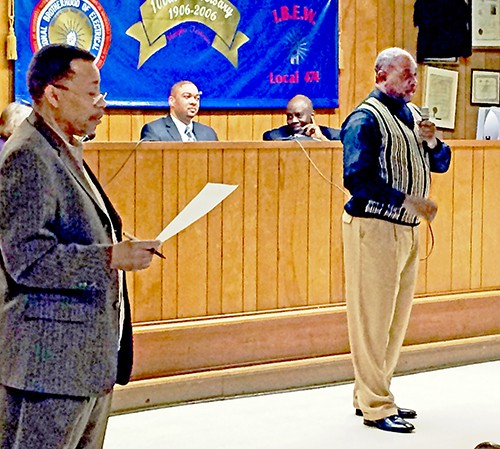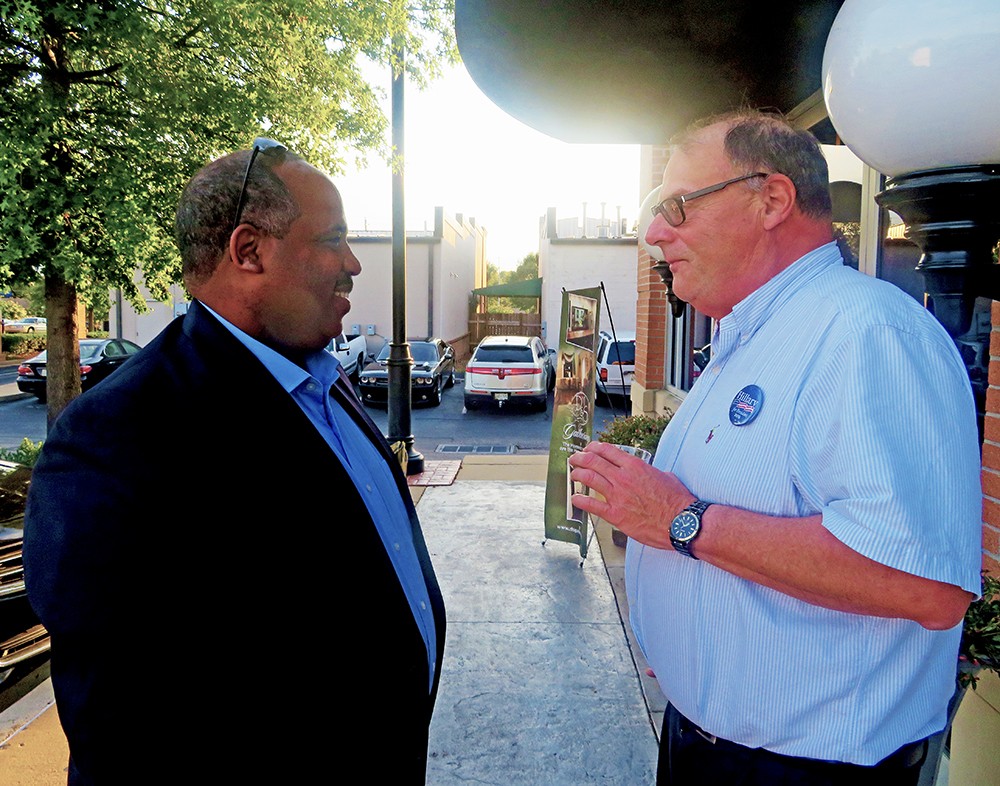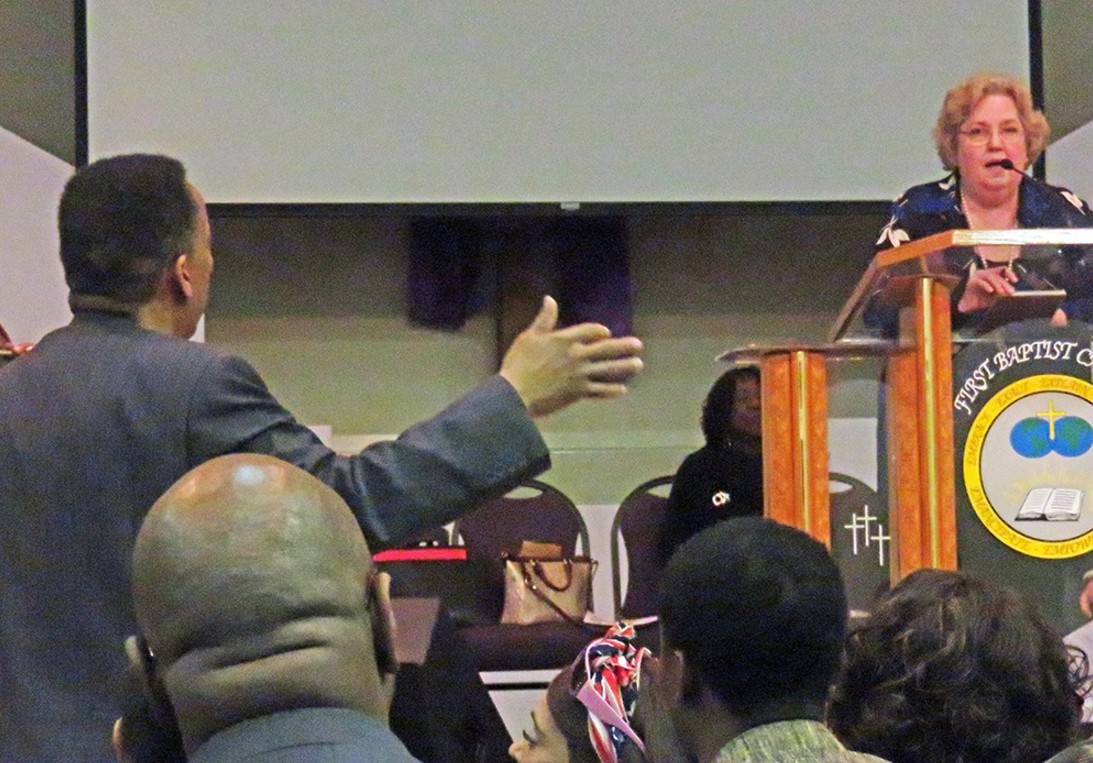 JB
JB
Last March the Shelby County Democrats’ executive committee formally censured several party members for consorting with Republicans.
“I wish those Democrats would go ahead and just sign up and be Republicans. Go ahead and join the party because we don’t need you. You don’t support us.” — Bryan Carson, August 8, 2014
Sure, this day-after-election statement about Democratic crossover voters by the youthful Shelby County Democratic chairman — quickly withdrawn and apologized for within a day — reflected the strain and frustration of a losing race. But it also contained evidence of the virus that has infected the local party for years — and that reached the life-threatening stage this year.
The fact is that, over the past generation, many a Democrat has gone ahead and just “signed up” to be a Republican. The throngs that swell the annual functions of the local GOP — the Lincoln Day Dinner, the Master Meal, and the other large-scale affairs that require significant ballroom space — are loaded with former Democrats, many of them office-holders.
The crowds that attend the Kennedy Day Dinner and other gala functions of the Democrats — the same Democrats who used to number most of the county’s movers and shakers — grow smaller year by year, as do the venues rented to put them on.
Four years ago, Shelby County’s Democrats, conscious of demographic population numbers that seemed to guarantee them an electoral majority, girded for a sweep in the August county election and got one; only it was they who were on the losing end of it.
What happened? One explanation, still popular among the party’s strategists, was that Republican turnout was inflated by the intensely competitive race going on that year among Republicans in the 8th Congressional District and, even more so, by a governor’s race featuring three GOP candidates who spent large and seemed to be making Shelby County a second home.
Another explanation, still widely accepted among Democratic activists and on the street, was that fraudulent or incompetent oversight of the election by the GOP-dominated Election Commission had cheated Democrats out of several possible victories.
In the election just concluded on August 7th, neither of these conditions applied: It was the Democrats who had competitive races — for the 9th District congressional seat between victorious incumbent Steve Cohen and challenger Ricky Wilkins and for the U.S. Senate nomination between impressive newcomers Gordon Ball, the winner, and Terry Adams, the near-thing loser.
Thanks to significant pressure from local Democrats and their governmental allies, federal monitors were on hand to prevent any possible hanky panky at the polls.
Yet it was the same old same old when the votes were counted. Republicans had won everything except for the assessor’s race, won by respected Democratic incumbent Cheyenne Johnson, who kept her campaign mostly separate from the “coordinated campaign” run by the Shelby County Democratic Party and who was, in effect, having to reenact her off-year victory of two years earlier, thanks to a change in the state election calendar.
Of course, the outcome could be partly explained by an apparently disproportionate turnout, especially in early voting, by white suburban Republicans and a lesser-than-expected turnout by inner-city black Democrats. But that argument amounts to what logicians call a tautology, which is a rhetorical first cousin to circular reasoning — as in: “The reason for the lower Democratic vote was that fewer Democrats came to the polls.”
And the fact is, there was more to it than that. Of the Democrats who did come to the polls, it is estimated that perhaps 20 percent of them cast their votes not for party mates but for Republican candidates on the ballot.
These are the ones — the difference-makers castigated by Chairman Carson the morning after — who swung the election. His implication was that these voters were disloyal, and demands for absolute loyalty had all too clearly dominated local Democratic proceedings in the lengthy run-up to the August election.
“Disloyalty” by party members had in fact become a third reason cited by disgruntled Democrats for the election debacle of 2010 — and grounds for punitive action.
Last September, the device of censure was trotted out by the party executive committee to stigmatize James Harvey, chairman of the county commission, for allegedly colluding with GOP commissioners on committee assignments.
Then, in January, at what was a reasonably successful Kennedy Day Dinner, Carol Chumney, the former state representative and city councilmember, delivered an impromptu oration against what she called “Republi-Democratic” behavior — specifically the refusal of “one of our congressmen” to support her in a losing special election race in 2012 for district attorney general.
The congressman in question was Cohen, who had stayed out of that 2012 race. Other prominent Democrats — notably City Councilmen Jim Strickland and Shea Flinn — had actively backed Republican Amy Weirich. In any case, the applause for Chumney’s remarks seemed to transcend particular cases.
Then in early March, several prominent Democrats — former Chairman Sidney Chism, state legislators Reginald Tate and Joe Towns, and well-known Whitehaven activist Hazel Moore — were formally censured by the local party’s executive committee for “disloyal” actions.
Chism’s offense was that of being partial to Republican Sheriff Bill Oldham and discouraging a run for sheriff by eventual Democratic nominee Bennie Cobb. The other three were cited for courtesy visits to a fund-raiser for Republican Circuit Court Clerk Jimmy Moore.
Moore, a onetime Democrat noted for his friendships (and campaign donations) across party lines, was a case in point — a nominal Republican who, like other elected county officials, was forced to choose a party label after the advent of local party primaries in the early 1990s.
The Republican Party, which had already swelled its ranks statewide by attracting erstwhile Democrats to the fold, had begun doing the same thing locally — actively soliciting Democrats and pointedly discounting their former votes and political activity.
For whatever reason, Democrats had taken the opposite course, erecting rigid obstacles to potential members and party candidates with even a hint of Republicanism in their past.
When, in the wake of the Tennessee Waltz scandal of 2005, Matt Kuhn was elected local Democratic chairman at the head of a reform slate, he was forced by a vocal minority to rescind invitations to interested Republicans who wanted to attend that year’s Kennedy Day Dinner.
And that attitude has persisted and even hardened in the exclusionary actions of election year 2014 — one manifestation of which was the embarrassingly rowdy session in which the Democratic Executive Committee voted its endorsements for judicial candidates, making choices so exclusively based on hearsay claims of Democratic loyalty that numerous deserving candidates vetted by a party screening committee were summarily rejected.
That most of these endorsees went down to defeat in the election was consistent with the fate of the party’s nominees in other races, which, more often than not, were based on insular thinking and devoid of significant efforts at outreach.
It is no coincidence that the series of self-destructive actions that damned the once-promising election hopes of Juvenile Court Clerk candidate Henri Brooks began with a County Commission session in which Brooks brow-beat an Hispanic witness and seemed to impute Klan membership to a white colleague.
Then there was the promise of “Judge” Joe Brown, the party’s candidate for district attorney general, to teach the the county’s white population, now out-numbered by African Americans, “how to be a good minority.”
That was actually one of the least impolitic of Brown’s presumably well-intentioned off-the-cuff public remarks, but it reflected a reliance on sheer census numbers that seemed to infect the whole Democratic ticket.
Democratic mayoral candidate Deidre Malone, who resisted such thinking, lacked the funding to escape the back-wash of it and lost by a larger margin than need have been to the GOP’s placidly centered Mark Luttrell. Ditto with Juvenile Court judge candidate Tarik Sugarmon in his formally nonpartisan race with Republican Dan Michael.
Other Democratic candidates —
Wanda Halbert, Rhonda Banks, William Chism — fell just short.
One highly tempting conclusion is that the 20 percent of Democrats who forsook the ticket included significant numbers of African Americans as well as whites. But that’s another story.
To be continued.
 JB
JB  JB
JB  JB
JB